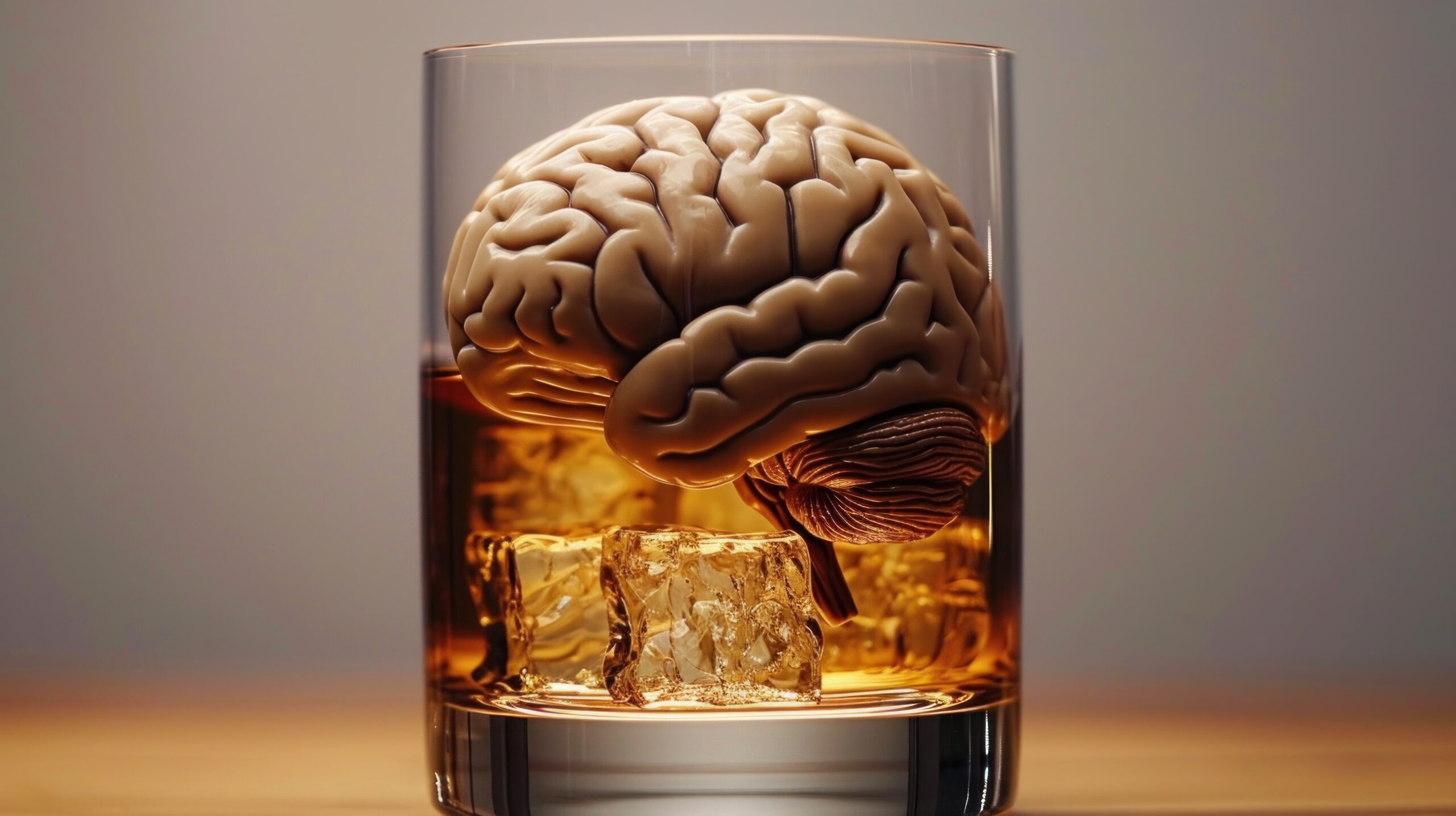Dementia is an overarching term for a decline in mental ability severe enough to interfere with daily life, affecting memory, thought processes, and social abilities. Alcoholic dementia, often referred to as alcohol-related dementia (ARD), is a form of dementia linked to the excessive consumption of alcohol. It involves cognitive decline resulting from the direct and indirect effects of alcohol on the brain over time. Here’s what you need to know about this condition, its symptoms, causes, treatment options, and preventative measures.
Causes and Risk Factors
Alcoholic dementia results primarily from the neurotoxic effects of alcohol on the brain, combined with the nutritional deficiencies often seen in those with long-term alcohol misuse. Chronic alcohol consumption can lead to:
- Direct Neurotoxic Effects: Alcohol can cause direct damage to the brain cells, reducing brain mass and impacting its structure and metabolism.
- Thiamine Deficiency: Many people with alcohol dependence develop a deficiency in thiamine (vitamin B1), crucial for brain health. Thiamine deficiency can lead to serious brain disorders like Wernicke-Korsakoff syndrome, which is often associated with alcoholic dementia.
- Liver Disease: Excessive alcohol use can also cause liver damage, affecting the brain when toxins from the liver are not properly filtered out.
Symptoms
The symptoms of alcoholic dementia can vary widely but typically include:
- Memory Loss: Particularly affecting short-term memory, with possible impacts on long-term recall.
- Impaired Executive Function: Difficulties with planning, decision-making, and task completion.
- Disorientation: Confusion about time, place, and occasionally familiar faces.
- Language Difficulties: Problems with speech, understanding, and following conversations.
- Personality Changes: Shifts in behavior, including increased irritability, apathy, or disinhibition.
- Mood Instability: Fluctuations in mood, including episodes of depression and anxiety.
- Psychotic Symptoms: Less common, but may include hallucinations or delusions.
- Coordination Problems: Unsteady gait and poor coordination due to cerebellar impact.
- Physical Decline: General decrease in physical capabilities, muscle weakness, and reduced stamina.
- Sleep Disturbances: Issues like insomnia or disrupted sleep patterns.
- Tremors: Noticeable shaking, particularly in the hands.
- Seizures: Possible in severe cases, linked to extensive brain damage and withdrawal.
What Is Living With Alcoholic Dementia Like?
A day in the life of someone with alcoholic dementia typically involves close support and supervision to manage daily activities and ensure safety. Mornings may start with confusion and require help with personal care routines. Throughout the day, structured activities that cater to their capabilities, such as listening to music or light exercise, help provide stimulation and maintain physical health. Meals are an important focus, often needing adaptations to meet nutritional and physical needs. Emotional support is crucial as mood fluctuations are common, and evenings may require strategies to manage increased confusion or agitation. Caregivers are integral in ensuring medication adherence and safety, and providing continuous reassurance and assistance. While challenging, with compassionate care, individuals with alcoholic dementia can still engage in daily life with dignity.
How Common Is Alcoholic Dementia?
Estimating the exact prevalence of alcoholic dementia is challenging due to various factors, including diagnostic complexities and overlap with other conditions related to alcohol misuse. However, some insights can be gleaned from research and clinical observations.
Alcoholic dementia, which includes conditions like alcohol-related brain damage and Wernicke-Korsakoff syndrome, is one of the leading forms of cognitive impairment associated with alcohol use. Although precise figures are difficult to pinpoint, it is considered a significant health concern among chronic heavy drinkers.
Research suggests that:
- Alcohol-Related Brain Damage: This broader category is believed to affect a substantial portion of long-term heavy alcohol users. Studies have suggested that as many as 10% of people in Western countries with alcohol dependence might develop severe forms of brain damage that could manifest as dementia.
- Wernicke-Korsakoff Syndrome: This specific syndrome, which is a major contributor to alcoholic dementia, affects about 1 to 2% of the general population in the United States but is significantly more common among those with alcohol use disorders, with estimates ranging up to 12-14%.
The true prevalence is likely underreported due to misdiagnosis or underdiagnosis, partly because the symptoms can be mistaken for other psychiatric or neurological conditions,
Diagnosis and Treatment
Diagnosing alcoholic dementia involves a comprehensive assessment that includes medical history, mental status evaluations, and brain imaging studies. It is crucial to differentiate ARD from other types of dementia and brain disorders to tailor the appropriate treatment strategy.
Treatment for alcoholic dementia involves multiple strategies:
- Abstinence from Alcohol: This is critical to prevent further damage and potentially allow some degree of brain recovery.
- Nutritional Support: Restoring normal levels of vitamins and nutrients, particularly thiamine, is essential to address deficiencies and support brain health.
- Medical and Supportive Care: Managing symptoms and supporting the individual’s health through medications, therapy, and community support can improve quality of life.
- Cognitive Rehabilitation: Some patients may benefit from therapies aimed at improving cognitive function.
Preventing Alcoholic Dementia
Prevention of alcoholic dementia is largely centered on the responsible use of alcohol and early intervention in cases of alcohol abuse. Public health efforts to reduce alcohol consumption and promote awareness about the effects of alcohol on the brain are crucial. Early treatment for alcoholism and related health issues can also significantly reduce the risk of developing alcoholic dementia.
Implications
The implications of alcoholic dementia are profound, not only for the individuals affected but also for their families and communities. It places a significant burden on healthcare systems and has wide-ranging social and economic impacts. Understanding alcoholic dementia is important to foster better support systems and treatment options for those affected.
Alcoholic dementia underscores the serious, often irreversible consequences of chronic alcohol abuse on the brain. While it is a preventable condition, it requires increased awareness, early diagnosis, and comprehensive treatment strategies to manage its effects and support those impacted. Contact us today if you or someone you love lives with alcoholic dementia.


 Verify Insurance
Verify Insurance
 Toll Free Call
Toll Free Call